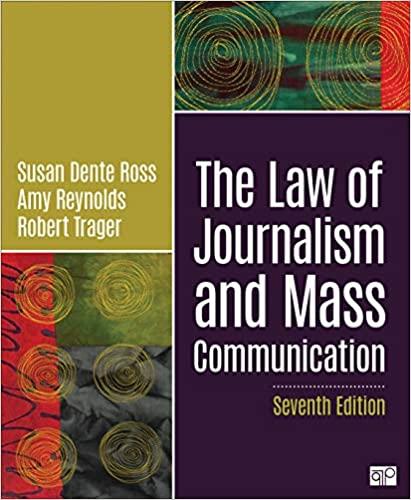Question
In 2021, Macquarie University formed MQU Sharetraders Pty Ltd (hereafter MQUS) a proprietary company with liability limited by shares, for the purposes of investing in
In 2021, Macquarie University formed MQU Sharetraders Pty Ltd (hereafter "MQUS") a proprietary company with liability limited by shares, for the purposes of investing in the share market and making a profit from $10m in excess student tuition. Three staff members at Macquarie University, Rahat, Mark and Bob assisted in setting up MQUS, helped to negotiate the terms on which MQUS got access to the excess tuition from Macquarie University, and helped register MQUS with ASIC.
MQUS's registration documents disclosed that it issued 100 shares in total, one each to Mark and Bob for their roles in promoting MQUS in addition to their normal (quite significant) staff pay from the University, 51 shares to Macquarie University in exchange for the seed capital for MQUS (the $10m excess student tuition), 10 shares each to four directors (Rahat, Steven, Lisa and Tom, all heads of departments in Macquarie University's Business School, and each of which agreed to be listed on the registration documents), and the remaining 7 shares to be held by the company for securing future investment or contributions. MQUS appointed an external auditor.
MQUS's constitution states that it will pay an annual divided each year on the anniversary of its registration, in the amount of 10% of the net profits of the company calculated one week before the end of each year of trading. The constitution also provides that MQUS can enter into contracts with the signature of at least one director, and it requires monthly meetings of the directors. In the initial director's meeting, Rahat, Steven, Lisa and Tom elect Rahat managing director, and task him with the duties of running MQUS's day-today operations.
Rahat uses some of the seed capital to rent space for a full year at WeWorking Macquarie Park with rent payable in monthly instalments, to purchase computers, and to hire and retain 100 students from the Macquarie University Business School (graduates of ACCG2002, of course) to start trading shares and options on the ASX for MQUS.
At the second meeting of the directors, Rahat proposes and the directors all vote in favour of establishing a bonus scheme to be paid out every six months for the MQUS employees (the share traders), on top of their usual pay. The bonus scheme is designed to encourage the employees to purchase highly risky investments in an attempt to increase MQUS's potential return on its investments, and higher return payouts if possible to MQUS's shareholders.
In the first three month of operation, the investment choices of MQUS's employees are wildly successful, doubling its assets, and returning huge profits for the company. On the basis of these profits, MQUS's managing director Rahat goes out and secures even more capital ($100m) from a similar excess tuition fund operated by University of Melbourne in the form of a debenture, with 3% interest per year, payable in monthly instalments. Rahat does this without consulting the other directors and without securing shareholder approval. With the additional capital, MQUS's successes grow exponentially for another three months, and MQUS pays its employees a first huge six-month bonus.
Low and behold, a few months later (9 months after registration with ASIC) disaster strikes and soon every single one of MQUS's high-risk investments tanks, reducing MQUS's business value to more than a peppercorn, but not much more. MQUS is unable to pay for its super-fancy WeWorking space, to pay its employees, or to pay even the interest on the debenture to University of Melbourne.
Directors Steven and Lisa issue public statements that they did not know about the loan from the University of Melbourne. Macquarie University and the University of Melbourne deny having excess student tuition funds.
(i) what is likely to happen next,
(ii) who is likely to take those steps,
(iii) who if anyone is likely to be held liable and why (what legal theories),
(iv) what if any defenses are likely to be raised and are they likely to be successful, and (v) what are the likely outcomes for the relevant parties?
Step by Step Solution
There are 3 Steps involved in it
Step: 1

Get Instant Access to Expert-Tailored Solutions
See step-by-step solutions with expert insights and AI powered tools for academic success
Step: 2

Step: 3

Ace Your Homework with AI
Get the answers you need in no time with our AI-driven, step-by-step assistance
Get Started


